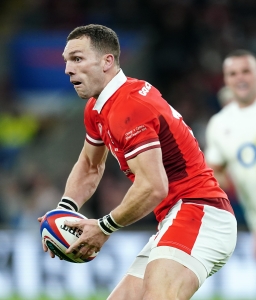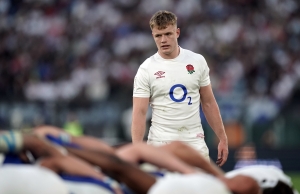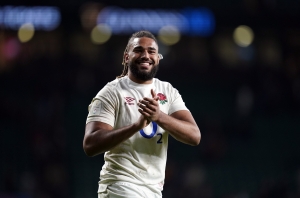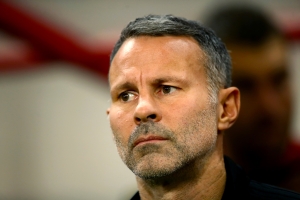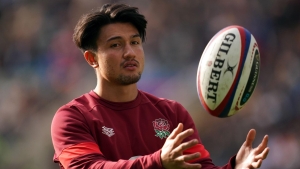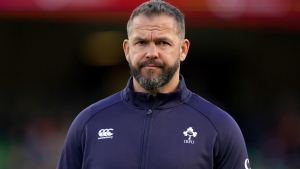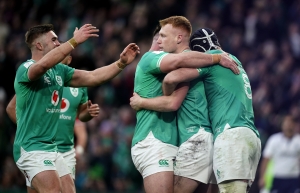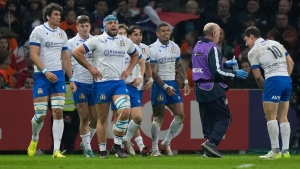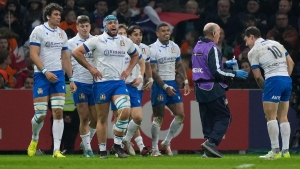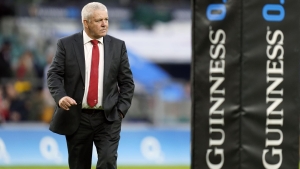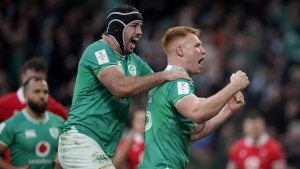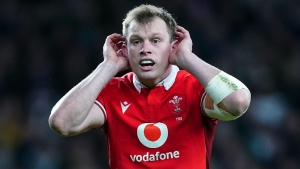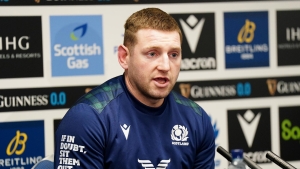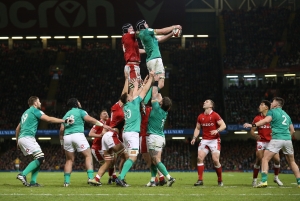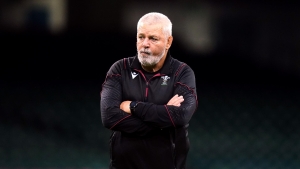Wales boss Warren Gatland has sprung a major selection surprise by omitting established centres George North and Nick Tompkins from his line-up for Sunday’s Guinness Six Nations clash with France.
But Wales assistant coach Mike Forshaw says both players have “jumped back on the horse” after being left out, with a new midfield pairing of Joe Roberts and Owen Watkin preferred.
While North and Tompkins have 155 caps between them – North is Wales’ most experienced Six Nations squad member – 23-year-old Scarlets centre Roberts will make his first tournament start and Watkin is recalled after featuring against opening opponents Scotland.
“I think it is an opportunity to have a look at Joe,” Forshaw said. “I think Joe was unlucky not to go to the World Cup.
“We just felt if we were going to have a look, this was the game to do it. He (Roberts) is a really promising young 13 going forward, and Owen Watkin has a lot of experience.
“I suppose there is always a risk in every selection, but I suppose we have to be confident in the messages we are giving and the coaching we are doing.
“They (North and Tompkins) are not injured. Nick and George have been spoken to. They firmly believe in what we are doing.
“I don’t think they have been dropped. They have had two games together and they have done extremely well.
“But we have got to see Joe playing, and we are going to see him. We’ve decided to make that switch this week, and we’ve got to back him.”
Wales have lost their last four Six Nations games against France, but they tackle a struggling Les Bleus team defeated by Ireland and one that drew at home against Italy either side of narrowly beating Scotland.
Wales, though, have yet to win in this season’s competition ahead of their final two fixtures against France and Italy, which are both at the Principality Stadium.
Forshaw added: “The two boys were disappointed, but this morning they jumped back on the horse and they were very supportive of Owen and Joe. George is a great man around this environment, and he totally gets it.
“I would be disappointed if they weren’t disappointed. Selection day is always tough because you want to be in the team, you want to play for Wales.
“This morning they were both great. They were down yesterday, which I get because I have been there and know what it is like, but the two boys who have come in they will fully support them.
“It’s just finding out what the next World Cup cycle is going to look like in material and personnel. I think at the end of this tournament we will have a good idea who is going to Australia (on Wales’ summer tour) and then going into the autumn.”
Elsewhere, Wales captain Dafydd Jenkins has been switched from lock to blindside flanker, with Will Rowlands called up as Adam Beard’s second-row partner, while hooker Ryan Elias replaces Elliot Dee.
It will be Jenkins’ first appearance in the number six shirt for club or country, and he takes over from Alex Mann.
Rowlands missed Wales’ opening Six Nations appointment with Scotland after his partner gave birth, and he then featured off the bench in defeats to England and Ireland.
Mann is among the replacements, where his colleagues include fellow Cardiff forward Mackenzie Martin, 49 times-capped Dee and Scarlets scrum-half Gareth Davies.
“I don’t think it is a risk with Daf at six,” Forshaw said. “He is around two very smart back-rowers.
“Will Rowlands played 70 minutes on the weekend in Paris (for his club Racing 92). I saw glimpses of him getting back to his best. I think it is a good fit for us this week.”























